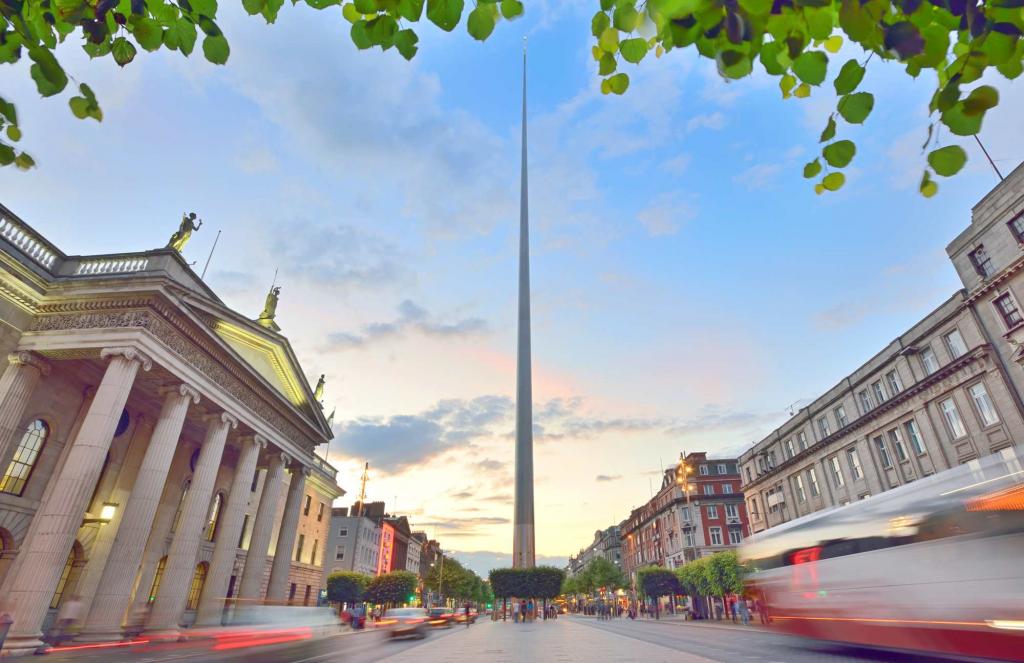Thessaloniki gets ready for its metro launch in November
The underground rapid transit lines have been under construction for almost two decades due to various project delays
 TheMayor.EU logo
TheMayor.EU logo 
The directly elected mayor Dublin would be able to serve up to two five year terms, according to the Citizens' Assembly , Source: Depositphotos
The current position of Lord Mayor of Dublin is elected by the City Council and is held for a term of one year, with very limited powers
Last weekend, a Citizens’ Assembly in Dublin voted in favour of creating a powerful and directly elected mayor for the city. The office would be directly responsible for 15 branches of local power at first, with others gradually falling under the mayor’s jurisdiction.
Additionally, the Citizens’ Assembly also wants the mayor to be supported by additional institutions like the Vice-Mayor. While Dublin is still far from actually having a directly elected mayor, this motion is an important first step to establishing the position.
Ireland has a rather unique administrative system compared to the rest of the European Union, as most cities do have the position of Mayor, however, it is largely ceremonial.
In Dublin, which is divided into several administrative areas, each local authority elects a mayor among its councillors for a term of one year. The same goes for the Lord Mayor of Dublin, a role with very limited powers or accountability to the electorate. City Councillors are also generally part-time positions.
This system sits in stark contrast with most of the EU’s administrative organisations on the national levels, where local elections usually cover the position of mayor, as well as some sort of local council, made up of councillors through proportional representations.
In fact, depending on the size of a given municipality and the size of the local council, there are also positions that mirror sort-of ministerial roles, like Councillor for Youth, Public Housing and etc.
In 2019 Ireland did try to introduce directly elected mayors through referenda in Waterford, Limerick and Cork, yet the vote passed only in Limerick. Legislation to accommodate the new role is expected to be ready by the 2023 local election.
The Citizens’ Assembly was made up of 99 Dublin residents and from August to October, they had to hear presentations from experts and after which vote on a number of issues on the topic. The Assembly voted in favour of a directly elected mayor and gave the title a number of direct responsibilities.
They include housing, homelessness, community healthcare, childcare, sports, transport, culture, the environment, economic development, planning, land use and strategic development, tourism, waste management, emergency services, infrastructure and roads, support for the Traveller and Roma communities and the night-time economy.
Members of the assembly also recommended holding a referendum on the new office before establishing the legislative framework, as well as a number of supporting offices. The recommendations of the assembly will now move to the National Assembly of Ireland for further consideration.
Also, the mayor should serve up to two terms of five years duration each and there should be a mechanism to remove the mayor either by councillors or the public. Additionally, the mayor should have the power to raise funds from markets, retain funds from taxes paid in Dublin, and introduce local taxes.

The underground rapid transit lines have been under construction for almost two decades due to various project delays

Now you can get your wine in Talence by paying directly in Bitcoin

That’s because the state has to spend money on updating the railway infrastructure rather than subsidizing the cost of the popular pass

Rethinking renewable energy sources for the urban landscape

The examples, compiled by Beyond Fossil Fuels, can inform and inspire communities and entrepreneurs that still feel trepidation at the prospect of energy transition

Now you can get your wine in Talence by paying directly in Bitcoin

The 10th European Conference on Sustainable Cities and Towns (ESCT) sets the stage for stronger cooperation between the EU, national and local level to fast track Europe's transition to climate neutrality.

At least, that’s the promise made by the mayor of Paris, Anne Hidalgo

The underground rapid transit lines have been under construction for almost two decades due to various project delays

At least, that’s the promise made by the mayor of Paris, Anne Hidalgo

Hostal de Pinós is located in the geographical centre of the autonomous region

Despite its church-y name, the district has long been known as the hangout spot for the artsy crowds

Urban dwellers across the EU are having a say in making their surroundings friendlier to people and the environment.

Forests in the EU can help green the European construction industry and bolster a continent-wide push for architectural improvements.

Apply by 10 November and do your part for the transformation of European public spaces

An interview with the Mayor of a Polish city that seeks to reinvent itself

An interview with the newly elected ICLEI President and Mayor of Malmö

A conversation with the Mayor of Lisbon about the spirit and dimensions of innovation present in the Portuguese capital














